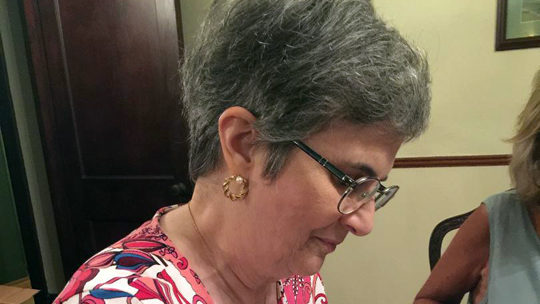When I train a group or coach an individual in my complete consensus building system, we cover my Three Magic Questions to optimize the results for one or both parties. I’ve written a lot about the First Magic Question, “Why?” in my books Bridges to Consensus and Love on the Rocks with a Twist and in this blog.[i] I’ve also written quite a bit about the Third Magic Question, “How do we want to feel?”
I write least about The Second Magic Question, but it’s a wonderful question, “What else do we want?” Sometimes, when people have resolved a disagreement, they want to quit while they’re ahead. They fear that, if they continue the conversation, the other person might change their mind. That’s true of typical win-lose bargaining, or as I like to call it, “Number Line Tug-of-War.”
But with Interest-driven consensus building, it often happens that both parties are well satisfied, neither had to compromise. They end on pleasant terms. So, if not right then and there, sometime in the future, they might discuss other ways they could help each other out with respect to things seemingly unrelated to the original negotiation.
For example, you and your neighbor resolve the issue of his dog’s late night barking in a way you’re both quite happy with. Then, you discuss what each of you does for a living, and discover that you could each use the other’s goods or services.
Having mastered the Second Magic Question, we’re more likely to think of ways to help each other when we didn’t even start from a disagreement.
Last week I did just that. The salon where my hairdresser, whom I’ll call “Ann,” worked has closed. Ann’s now making house calls. I posted about her new service on my apartment complex’s internal social media platform.
A neighbor, “Beth,” responded, asking me to have Ann phone her. Ann’s number in my contacts proved incorrect. Now what? The salon number is no longer in service. I not only didn’t know how to tell Ann she should call Beth, I couldn’t even schedule an appointment for myself.
Scrounging around, I found an old number for my previous hairdresser, “Claire.” She worked in the same salon as Ann, but left a few years ago to start a different business.
I felt a bit hesitant to call Claire because we’d had an awkward conversation a short while before she left the salon. But I did call. Claire gave me a correct number for Ann and seemed happy to chat with me.
A few years ago, after much searching, Claire found an affordable type of synthetic hair that looks, feels and styles like natural hair. She started a hairpiece business. One of her top items is a wide hairband with a fall of hair from the back edge of the band. Perfect for women who lost hair during chemotherapy, better looking and more comfortable than a turban or a conventional wig, yet reasonably priced.
Once the hairpiece business was going well, Claire hired someone to handle day-to-day operations and started a concierge furniture business. She’s been especially helpful since Hurricane Harvey. Traumatized victims were up to their eyebrows dealing with their flooded houses. They had to find apartments ASAP. But they had also lost all their furniture, and didn’t have time to shop for more. After learning what they wanted, Claire could find it for them and have it delivered. Claire also works with realtors, staging “Harvey houses” that are repaired and market ready, but empty.
Though Claire and I were just chatting, not arguing, my Second Magic Question mentality kicked in. I live in a 55+ apartment complex with over 400 units. People 55 and over are more interested in hairpieces than younger folks. Seniors downsizing from a house to an apartment might want help finding smaller furniture.
I could post about Claire’s businesses on our internal social media platform. I know realtors I can tell about her house staging services. We discussed all sorts of options, and Claire was excited and grateful.
Having established this atmosphere, I said I had something I’d long wished to speak with her about. I felt we had misunderstood each other in that awkward conversation so long ago. We cleared the air. I think Claire was as relieved as I was.
Then I mentioned some ways she might help me out. I’d like to show her this apartment complex. If she knew people retiring and/or downsizing, I’d be happy to show them around. Prospective renters value input from current tenants. And if they decide to rent here, and say they found this complex through me, I get a referral fee.
I offered to give Claire a small sample of how I actually train people in consensus building and related communication skills. She could experience an actual training exercise, rather than just reading about the skills. If she liked it, she could take some of my cards and recommend me to persons wanting help in dealing with others.
So “What else do we want?” is not only a help in improving the resolution to a disagreement, it’s goes right to the heart of the true meaning of networking—looking for ways we can help others, which in turn, inspires them to help us.
What could you do to help someone you know?
[i] Use the search line, upper right, to find more posts on the “First Magic Question.”


Great, Margaret! Enjoyed reading.
Thanks, Sharon. Feedback is what keeps me going.